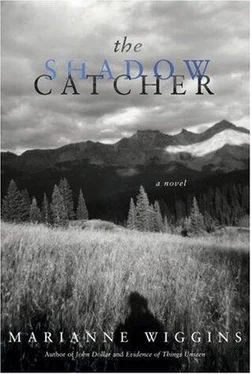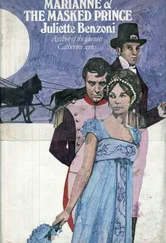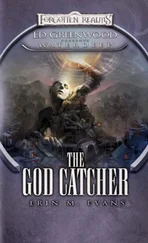They hadn’t had a proper wash for days but with a little spit and elbow grease she’d polished Hercules’s face and hands and buttoned him all up in his second-hand suit and run her fingers through her auburn hair and tied Amelia’s lambskin and velvet bonnet on her head. She could see them, the Curtises — Eva, Asahel and Ellen — standing by a buckboard next to the rickety platform, looking, she had thought, as expectant, worried and confused as she herself was feeling. But then a swell of gratitude went through her, the train came to a halt, releasing its steam, and Hercules was at the door and down the steps and into Asahel’s welcoming embrace before she had been able to stop him.
Her descent had been more cautious.
Perhaps, even then, she had been unknowingly anticipating Edward, searching for his face, even though she’d never met him.
There was Eva, pale and thin and tight-lipped. And Asahel, brown eyes brimming with excitement, grinning ear to ear. And Ellen, who had taken one astonished look at Clara, touched her throat and gasped Amelia! and collapsed onto the platform like a sack of old potatoes.
Clara was by her side immediately, her one semester of nursing education rising to the fore, cradling the downed woman’s head in one hand, feeling for a pulse with her other. “Has she been ill?” she’d asked of Eva and Eva, biting on her lip and looking paralyzed, had shaken her head. Clara had taken a vial of sal ammoniac from her traveling bag, broken it in half and waved the fumes near Ellen’s nostrils.
“Oh, Amelia ,” the older woman said again, coming to, “they told me you were dead.”
“It’s Clara, mother,” Eva scolded. “ Clara .”
“Amelia, dear, dear friend,” Ellen said again, patting Clara’s hand, “I’m so happy that you’re here.”
When Lodz had first seen Amelia’s portrait that Clara’s father had painted, he’d said, “Except for the dark hair, this is real you. You have her face, you know?” so the bonnet, clearly, was at the root of Ellen’s daft confusion, and although Clara told her, “Aunt Ellen, it’s me — it’s Clara ,” Ellen still clutched at her and whispered, “So relieved to see you, dear. You’ll know what to do, Amelia. You always do, praise God.”
They managed Ellen into a sitting position, then slowly to her feet, as she all the while held onto Clara, looking up at her with a dreamy expression that was frankly creepy, and Clara had begun to suspect the older woman might not be quite right in the head, a possibility that struck fear in her over what kind of tenuous security she’d wagered for herself and Hercules. Asahel organized their baggage and before long they were all seated in the buckboard and Clara, up front, next to Asahel, had the first opportunity to assess her new locality. It was sparse, for one thing, the Tacoma station, minimal and impermanent, hardly worthy of the designation End of the Line. It was a timber building built more like a religious campground structure than a masterpiece of railroading. If you were riding Northern Pacific rails then this was where you were when you and it ran out of steam, and it was pretty paltry, she had to say, conforming to no image she had expected — specifically: there appeared to be no town. There appeared to be no end-of-journey place , no respite from the wilderness she’d been looking at for these past days: no destination. Rain, but not-rain, a sort of visible and particulate wet air, like the inside of a cloud, raindrops held in time, sustained and not falling, misted on her face, her clothes, and lent the atmosphere a filtered presence, a gray light, as if one were living in a shadowy past. “Not so cold,” she’d finally said to Asahel. Always safe, in start-up conversation, to talk about the weather.
“Haven’t been here all that long myself, but winter’s pretty mild they tell me,” he agreed, “compared to what you’ve been through. On your journey here, I mean.” They happened to glance at each other, then, accidentally, and there was warmth and understanding in his eyes. Something else, too, something of a greater meaning or of a greater heat, which she was too exhausted to start to try to translate.
“I was sorry to learn about your parents, Clara,” he said. “They were fine people, always good to us when we had no one else.”
“And I’m sorry, too,” she’d said, “about your father.”
“Oh,” he shrugged. “You know, I hardly knew him. I have more memories of your father than of my own.” And there was that shadow, again, in his eyes, when he looked at her, that she couldn’t decode.
“Is it far?” she’d asked, staring ahead. “To the—”
“Fifteen miles. Then a ferry.”
“And will we see Seattle?”
“Seattle? Gosh, no. Why do you ask?”
“Curious. What’s it like? Have you been there?”
He started to laugh. “No reason for me to. No time.”
“And Edward,” she’d faltered, trying to mask her disappointment. “Where is he?”
“Edward?” He pointed with the horsewhip over his shoulder. “Edward’s up there, for all I know.”
In her confusion Clara thought he had meant heaven. She’d thought for one awful moment that he meant Edward was dead.
“Mt. Rainier,” he pointed again, and behind him, over his shoulder, Clara saw the mountain for the first time, majestic and snowcapped, dominating the distance.
“He’s—?” she stammered.
“—on the mountain,” he confirmed.
“But— why ?”
He’d laughed again, warm and welcoming, like his eyes. “Well, when he comes down, ask him yourself.”
The fact that the elder Curtis, the head of the household, had contrived not to be present for their arrival did not bode well, she’d thought. What if they weren’t welcome? What if Ellen, off her head, had forgotten to inform him?
“Edward goes away,” Asahel said, by way of explanation. “Then he comes back. You’ll see. Edward always comes back. He always does. Edward always comes back home.”
Clara might have dozed, sitting up, or else the densely forested countryside looked the same mile after mile because she seemed to lose track of time. Even the choppy ferry ride couldn’t invigorate her sense of dread and fatigue, and she was grateful to Asahel for taking charge of Hercules as she stood, gripping the rail of the boat, searching the trailing fog, as previous sailors must have done, for symptoms of a recognizable life.
And then they were there. Although what “there” was was hardly recognizable. Asahel drew the horse to a halt and helped his mother and sister from the back and began to unload the buckboard as Hercules ran toward the barn and Clara sat, unable to move, staring at what was before her.
Surrounded by green-black fir trees on three sides, this was a clearing, of sorts, a cleared rectangle in the middle of a pine tree forest, the narrow dirt road leading into a cul-de-sac with the house, if you could call it that, to the right side, the barn to the left and a sheer drop of land straight ahead where, between the pine trees, she could see the Puget Sound and hear it lapping on the shore, below. The earth in the foreground, between the barn and the house, was tamped bare and muddy and paved in places with crushed oyster shells. There was a timber rack next to the barn on which some kind of flesh was curing in rows and an overpowering aroma led her to conclude it must be fish. There was a garden, badly kept, between the house and the coastal promontory, staked for vines but overrun with chickens. There was a hand pump in the center of the bare ground between the house and barn, beside a water trough where a tomcat sat licking at its testicles, and beside the porch steps to the house, wrapped in blankets the same color as the fog, there stood two Indians.
Читать дальше











